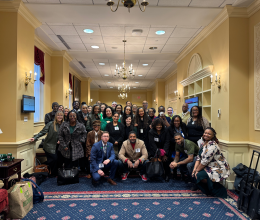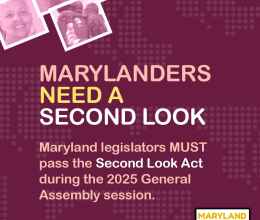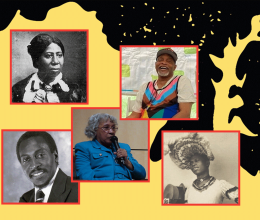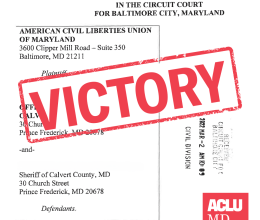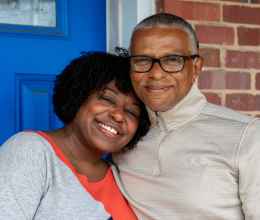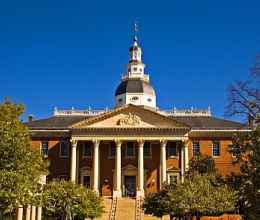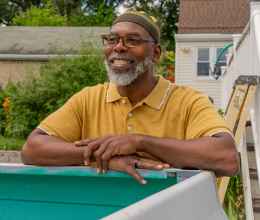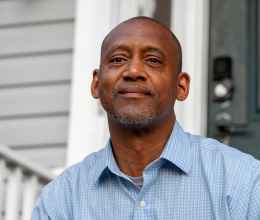Question E Ratification Secures Local Control of BPD, After a 12-year Campaign
Baltimore, MD – Question E – to secure local control of the Baltimore Police Department was ratified by Baltimoreans in November by a favorable vote of over 78 percent, the highest percentage of votes for any local charter amendment on the ballot this year. Baltimoreans have at long last taken the final step in securing legislative local control over the Baltimore Police Department (BPD).
In 1860, the state of Maryland took control over BPD because the anti-immigrant “Know-Nothing Party” was running it. In the modern era, Baltimore City has been the only jurisdiction in the state without the capacity to legislate locally for its police force, despite the fact that city taxpayers fund the BPD to the tune of over half a billion dollars yearly and even as Black Baltimoreans have suffered so greatly from disproportionate and racist policing. The voters of Baltimore have decisively spoken out in favor of self determination over our Police Department. And now we have what Baltimoreans have always deserved: the power to regulate and reform the BPD through local legislation.
“The fight for local control has been a battle steeped in racial discrimination. We fully understood the criticism from legislators who didn’t think that we, as a city, were capable of handling our own police department; yet held no issue with the impact of over policing, police brutality and racist policies that created generational harms in Black and Brown communities. This journey has been an arduous one. While we take a moment to claim victory, the work will continue,” said Donna Brown, Citizens Policing Project.
The Campaign for Justice, Safety, and Jobs and other community advocates have been fighting for the return of local control for well over a decade, and Question E is not the first time Baltimoreans have spoken. In 2022, voters overwhelmingly cast ballots in favor of a prior charter amendment to secure local control: it passed with 82 percent of the vote. Unfortunately, that ballot measure was technically insufficient to unambiguously confer on our City Council the power to legislate BPD policies.
Over a decade of work was put into this victory. Over the years, we held 14 community conversations, 6 civil engagement education sessions, mobilized volunteers to contact 39,456 Baltimoreans and engage voters on the need for local control. We have testified before the Baltimore City Council, Local Control Advisory Board, Baltimore House and Senate Delegations, and at Maryland House and Senate Judiciary Committee hearings no less than 25 times.
“We are proud that years of collective advocacy and organizing have finally brought local control of the Baltimore Police Department to fruition. This shift is a powerful step forward, especially as we confront the imminent threat of aggressive anti-immigrant policies in a second Trump administration-policies that would deliberately tear families apart and further devastate our communities. During the most recent federal administrations, Baltimore City has remained steadfast in establishing policies that protect its immigrant residents. With local control of BPD a reality, there is a pathway to ensure that the safety of ALL city residents is prioritized by our publicly-owned institutions and elected officials,” said Lorena Magdalena Diaz, ACLU of Maryland.
To update the portion of Baltimore City Charter which grants general regulatory and legislative powers to the City, The General Assembly passed SB 894 to make the necessary change during the 2024 Legislative Session. But we still needed Question E to make a few other tweaks to the City Charter to finalize the transfer of full control over the BPD from the state to the City.
“Passing Question E represents over a decade-long fight by dozens of organizations and community members, united in our commitment to overturning this archaic law. This victory is a testament to the power of working together—across different groups, communities, and allies—who have stood side by side in this struggle for justice. By shifting power back to local Baltimoreans, we now have the authority to make critical decisions about how we are policed, ensuring that our city’s policies reflect the values and needs of the people they serve,” said Rachel Kutler, Baltimore Director of Jews United for Justice.
What does local control mean going forward? Baltimore’s City Council will now be able to pass bills to address crucial issues in our racist policing system, including but not limited to:
- Police conduct: setting “rules of engagement” for police interactions with demonstrators.
- Tactics and use of force: banning the use of chokeholds and banning or limiting no-knock warrants.
- Data and reporting: requiring high-quality data on searches, arrests, citations, stop-and-frisk, and use of force to be publicly available so that the community can monitor progress on eliminating racial profiling and biased policing in all its forms.
- Technology and weapons oversight: requiring BPD to get prior authorization from the Council before buying and using new surveillance technology.
The Campaign for Justice, Safety, and Jobs coalition will now begin the real work with the community of holding the incoming City Council to account and ensuring that they pass strong, visionary legislation to change how BPD operates with respect to the diversity of our communities. The Coalition will also continue to meet with community members to seek input on policy priorities and develop an agenda for real police accountability in Baltimore.
###
The Campaign for Justice, Safety & Jobs (CJSJ) is a coalition of more than 20 community, faith, labor, and civil rights organizations that convened in April 2015 to address the systemic injustices unearthed by Freddie Gray’s police murder and the subsequent uprising throughout Baltimore City.
